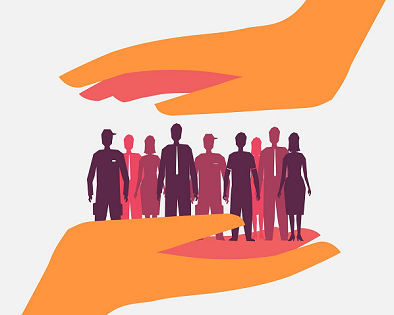
The welfare state is a form of government that adopts public responsibility for the economic, social and political prosperity of all its citizens.
Without a trace of irony in his voice, in a recent speech the career politician expressed both his aversion to the welfare state model and his admiration for Scandinavian society.
In Europe and the West, the welfare state gained prominence especially following the Great Depression. Seen as a middle path between communism and laissez-faire capitalism, the welfare state is intended to promote prosperity and limit poverty by funding various government institutions that promote equal opportunity, prevent social exclusion, and safeguard social stability. The welfare state may provide for its citizens, for example, by supporting education opportunities, ensuring adequate healthcare, and offering other benefits in cases of various life events. Generally speaking, three categories of welfare state can be distinguished: social democratic, conservative, and liberal. Proponents of the first form often cite the so-called Nordic model (found in the Nordic countries) as evidence of how such a system can generate both considerable wealth and social equality. Of course, the welfare state is not without its critics on both sides of the political spectrum.
Sociální stát je forma vlády, která přijímá veřejnou odpovědnost za ekonomickou, sociální a politickou prosperitu všech svých občanů.
Bez sebemenší známky ironie v hlase, vyjádřil kariérní politik ve svém nedávném projevu svou averzi k modelu sociálního státu a zároveň svůj obdiv ke skandinávské společnosti.
V Evropě a na Západě získal sociální stát na významu zejména po Velké hospodářské krizi. Sociální stát, který je považován za střední cestu mezi komunismem a laissez-faire kapitalismem, má prosazovat prosperitu a omezovat chudobu financováním různých vládních institucí, které prosazují rovné příležitosti, předcházejí sociálnímu vyloučení a zajištují sociální stabilitu. Sociální stát se může starat o své občany například tím, že podporuje vzdělávání, zajišťuje adekvátní zdravotní péči a nabízí pomoc v různých životních situacích. Obecně lze rozlišit tři kategorie sociálního státu: sociálně demokratický, konzervativní a liberální. Zastánci první kategorie často uvádějí takzvaný Nordický model (typický pro severské státy) jako důkaz toho, že systém může generovat jak značné jmění, tak sociální rovnost. Sociální stát má samozřejmě i své kritiky na obou stranách politického spektra.
English Editorial Services’ mission is to assist international businesses and organizations of all sizes to communicate clearly, correctly, and persuasively with their business partners and target audiences.
Simply subscribe to receive our Business Term of the Day at no charge to your inbox each business day, with explanation in English and Czech.



English Editorial Services’ mission is to assist international businesses and organizations of all sizes to communicate clearly, correctly, and persuasively with their business partners and target audiences.
Simply subscribe to receive our Business Term of the Day at no charge to your inbox each business day, with explanation in English and Czech.

